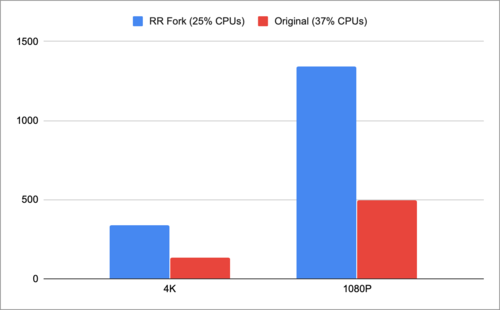Difference between revisions of "RidgeRun OpenCV Fork"
(→GStreamer Video Capture) |
|||
| Line 49: | Line 49: | ||
</source> | </source> | ||
| − | [[File:RR_opencv_fork_max_framerate|thumb|center|GStreamer Video Capture - Max Framerate]] | + | [[File:RR_opencv_fork_max_framerate.png|thumb|center|500px|GStreamer Video Capture - Max Framerate]] |
Revision as of 18:42, 21 September 2020
Introduction
The RidgeRun OpenCV fork is a modified version of the project with various improvements around speed and efficiency. While some changes are general (i.e.: any platform will benefit from them), others are specific to the NVIDIA Jetson family.
The fork is hosted at:
https://github.com/RidgeRun/opencv
Building the Project
Follow the instructions in our Compiling OpenCV from Source page. Make sure you select:
- RidgeRun fork
- GStreamer support
- CUDA support (if applicable)
Enhancements
GStreamer Video Capture
Effectively removes the memory copy when transferring data from the GstBuffer to the cv::Mat. Now the GstBuffer and its associated memory will remain alive throughout the lifespan of the matrix.
Tested under the following conditions
- OpenCV Version: 4.4.0
- FPS and CPU usage taken with the GstPerf element.
- The following source:
#include <opencv2/opencv.hpp>
int main() {
cv::VideoCapture cap(
"fakesrc sizetype=fixed filltype=zero sizemax=24883200 ! video/x-raw,format=BGR,width=3840,height=2160 ! "
"perf print-arm-load=true ! appsink drop=false sync=false max-buffers=3",
cv::CAP_GSTREAMER);
while(1){
cv::Mat frame;
cap >> frame;
}
cap.release();
return 0;
}
- Run with
g++ -o benchmark benchmark.cc $(pkg-config --cflags --libs opencv4$) -std=c++11
GST_DEBUG=perf:4 ./benchmark
